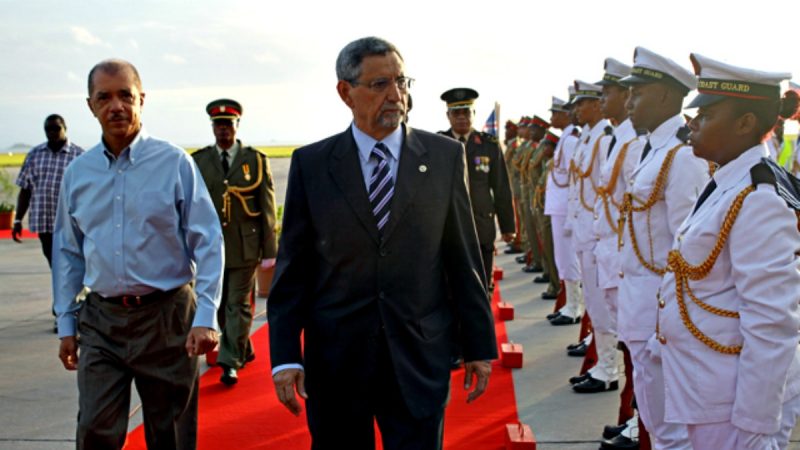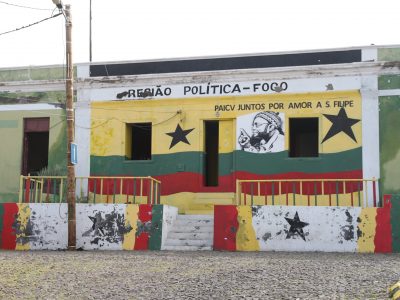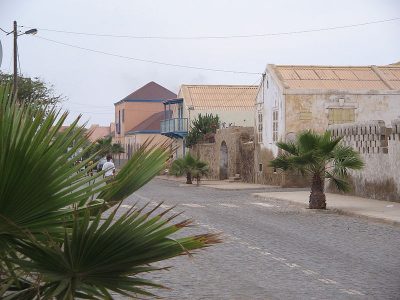
Jorge Carlos Fonseca (center) on an official visit to the Seychelles (2014). Photo:: Archive Wikimedia / CC BY 4.0
Jorge Carlos Fonseca was sworn in on Thursday, October 20, for a second term as Cape Verde’s president. Without a strong opponent, he won 74 percent of the votes in the October 2 election, the country’s sixth democratic contest. Fonseca won with the support of the Movimento para Democracia political party, which won a majority in legislative elections earlier this year, as well.
O POVO DIZ SIM CABO VERDE E ELEGE JORGE CARLOS FONSECA PARA O SEGUNDO MANDATO https://t.co/cVhSTMsRRo pic.twitter.com/2Xkh5XPIOa
— Luis Carlos Silva (@luiscarlossilva) October 3, 2016
THE PEOPLE SAY YES CAPE VERDE AND ELECTS JORGE CARLOS FONSECA FOR A SECOND TERM
According to local media reports, abstention was the toughest adversary any of the candidates faced, with more than 64 percent of the electorate refusing to vote. High though it was, the rate of abstention “does not take the shine off the victory,” Fonseca says.
Speaking to Deutsche Welle-Àfrica, the re-elected president stated that:
Nas democracias amadurecidas, altas taxas de participação normalmente só acontecem em períodos de ruptura política. Veja, por exemplo, o que se passa em Portugal e nos Estado Unidos, qual é a percentagem dos americanos que participam na eleição do Presidente. O Presidente americano terá menos legitimidade por causa disso?
In mature democracies, high rates of participation normally only happen in periods of political instability. Look at, for example, what is happening in Portugal and U.S., at the percentage of Americans participating in the presidential elections. Will the American president have less legitimacy because of that?
The dean of the University of Mindelo, Albertino Graça, was the second most popular candidate, winning 22.5 percent of the votes. Joaquim Monteiro, meanwhile, came away with just only 3.4 percent.






